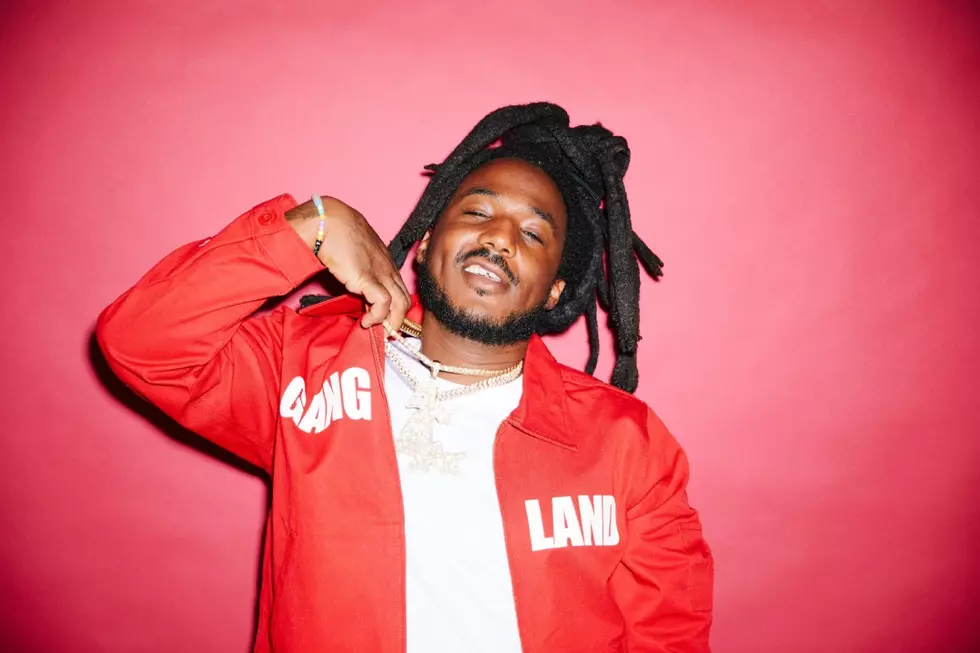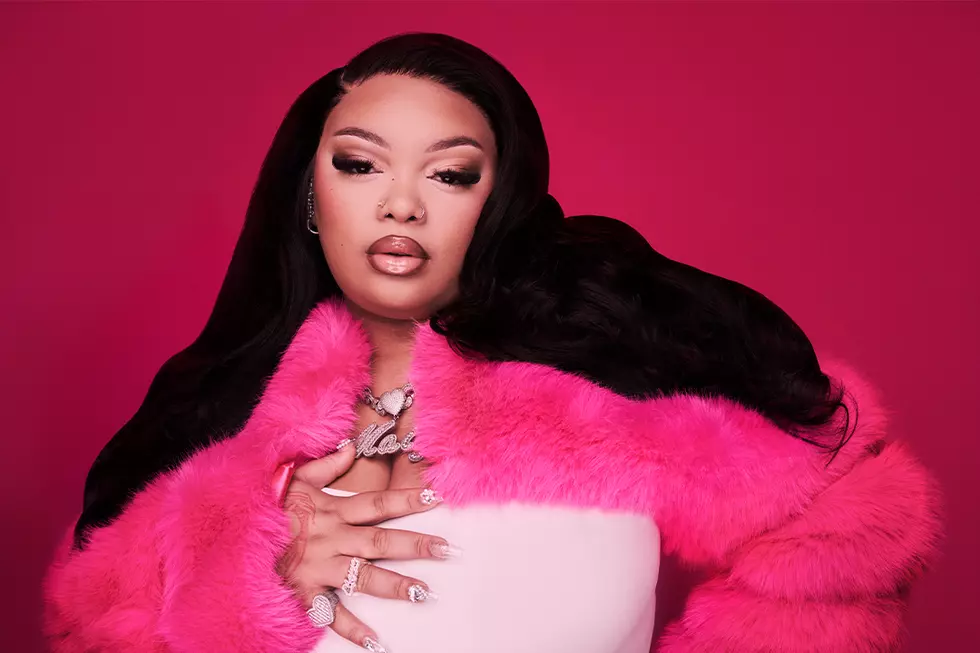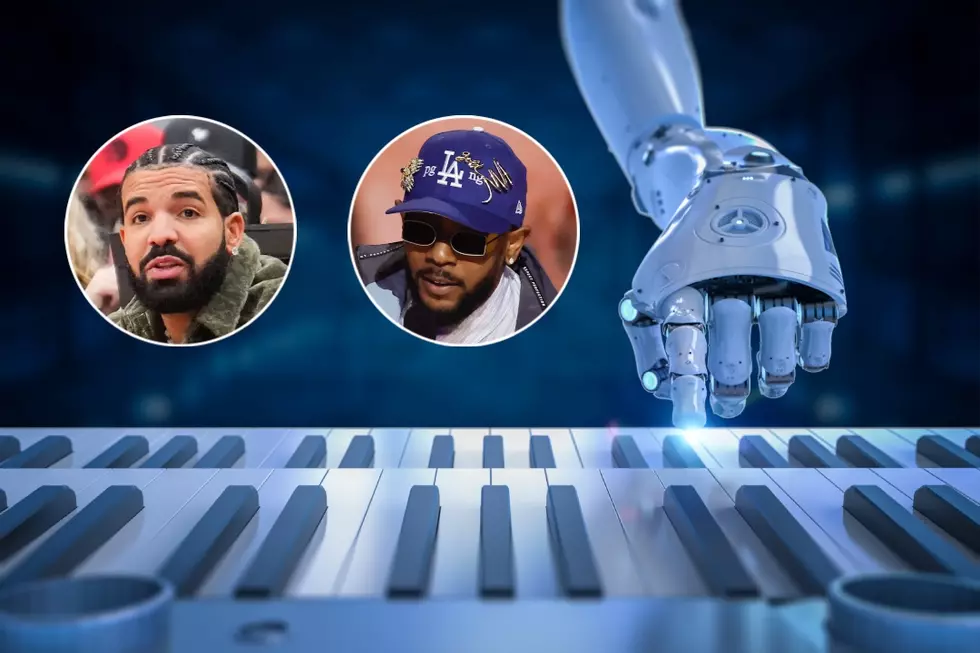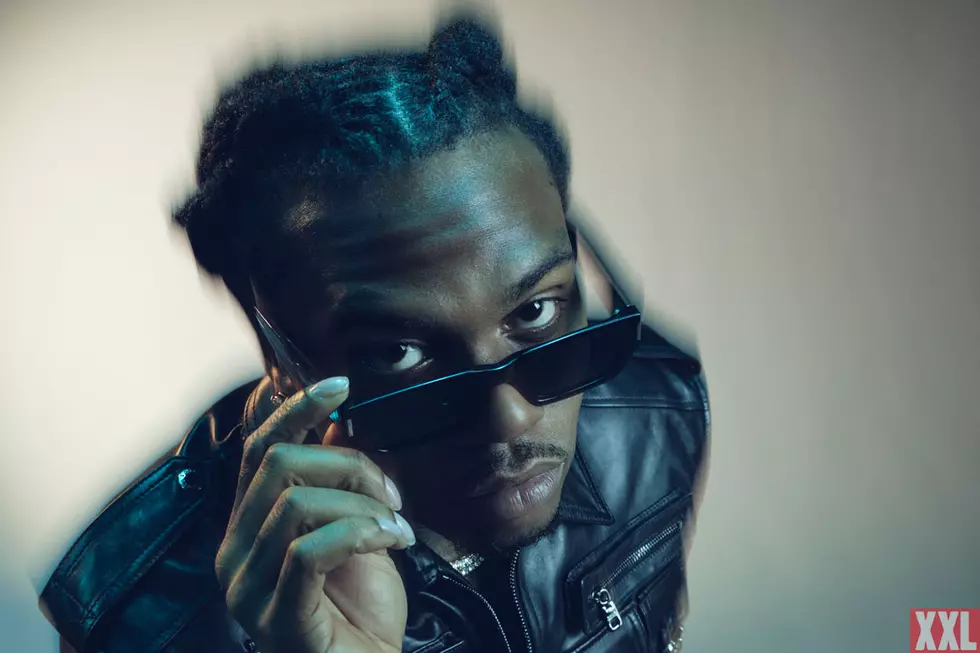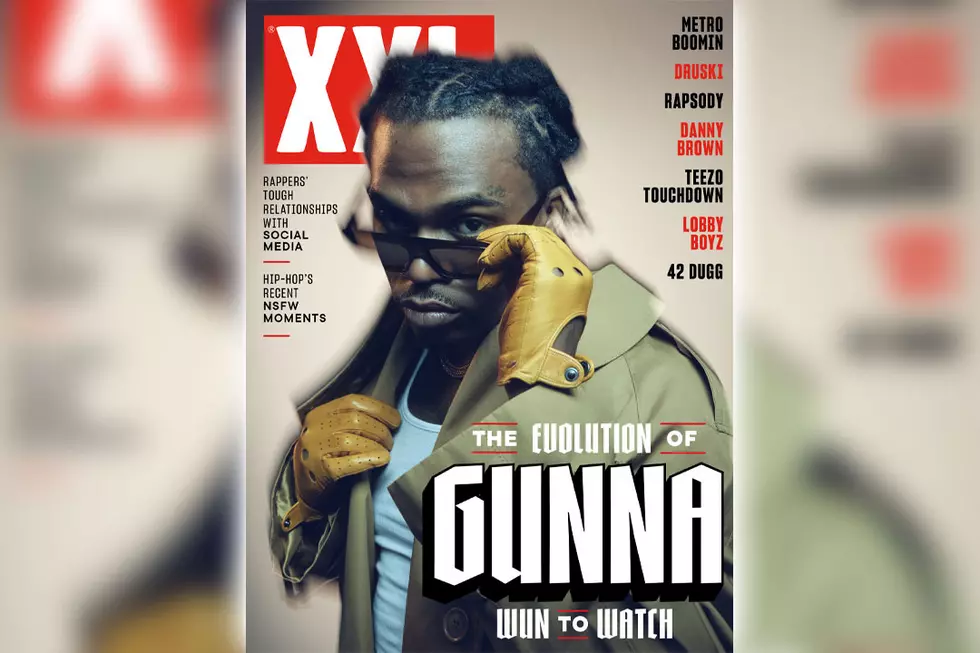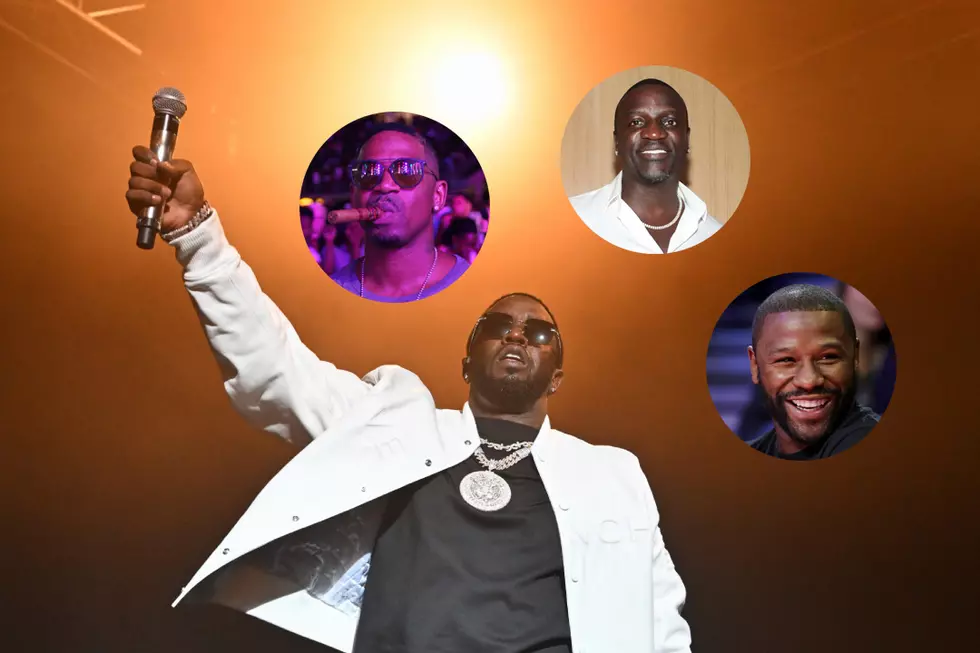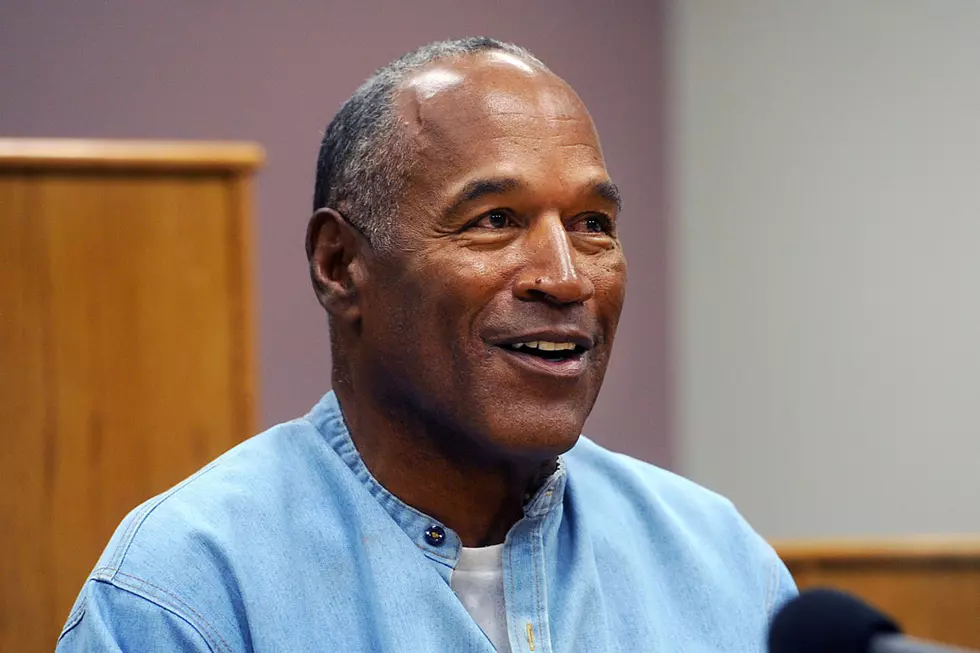
‘The Defiant Ones’ Documentary Offers an Emotional Ride Through Dr. Dre and Jimmy Iovine’s Careers
Dr. Dre and Jimmy Iovine are two of the most powerful men in music. These juggernauts, both from humble beginnings and from opposite ends of the country, found each other at critical turning points in their lives and went on to become musical innovators.
Their insane journey will be broadcast in the new four-part documentary, The Defiant Ones, premiering this Sunday (July 9) on HBO. The doc will show in great detail the growth of Iovine and Dre's careers and how they connected.
In 1992, Iovine's Interscope Records released Dre's classic album, The Chronic. From there on, their partnership began, eventually co-launching Beats Electronics in 2006, and selling the company to Apple in 2014 for $3 billion.
At the helm of The Defiant Ones is director Allen Hughes, known for his work on films Menace II Society, Dead Presidents, From Hell and The Book of Eli. Hughes initially thought of the film as a doc for Dre, but when he got word that Jimmy Iovine was making a film on Interscope, the director conceived the idea to intertwine their stories.
With The Defiant Ones coming out this week, Allen Hughes speaks to XXL about the documentary, what he learned from Dr. Dre and Jimmy Iovine plus changing the way docs are made.
XXL: What have you learned about Dr. Dre and Jimmy Iovine from making The Defiant Ones that you didn’t know already?
Allen Hughes: That’s a loaded question because I learned…when you make feature films, fiction, I don’t think you learn much except like, okay I can work with actors this way, or move this camera that way or this scene didn’t work. It’s movie shit, it’s not like life stuff. I think the difference with the documentary medium, in particular this one, you saw with Jimmy [Iovine] and Dr. Dre and all those great artists, most documentaries people say —and I love documentaries—it’s like eating your vegetables when you watch it, somehow this one, we figured out how to not only make it entertaining but there are so many life lessons and Jimmy and Dre opened up.
Most guys in their position are very guarded when they make these documentaries and it's very like tribute films. The whole time it’s about how they are, they never really tell you how they did it. Jimmy is unique in that way because I didn’t know shit. What they both taught me the most and what they most have in common is when they get focused on something—creatively or passionate about anything in their life—that’s all they talk about and that’s all they live, breathe and eat.
They don’t let any other noise come into their vision they just have blinders on. They don’t have extra conversations about sports or politics, they’re just so focused on what they’re doing. I took many, many life lessons from this but while I’m very passionate, they really taught me how to focus or tune out noise that doesn’t have anything to do with what you’re doing. As we get older that becomes more precious—to tune out the bullshit.
One of the things that both Dre and Jimmy Iovine did was figure out early on in their lives the things they didn’t want to do. Did you see other similarities between them?
Yeah, it’s funny because these guys are the opposite in many ways but the No. 1 thing they have in common is they never look back. They don’t have a rearview mirror. They are always moving forward. They don’t sit and tell old war stories, or records they made or celebrate past victories, even if they just have one. Once this documentary drops, you won’t see Jimmy or Dre talking about this after.
I tell you, I don’t have that ability [laughs]. Jimmy and Dre, they know how to get from point A to point B in an efficient, proactive way with the least distractions. They also really trust each other. These guys have a trust that I haven’t seen from two people that are from such different worlds. It’s unique.
When did this idea for The Defiant Ones first pop up? This had to take years to make and develop.
Well, I did a video for Eminem and Dr. Dre six years ago, “I Need a Doctor.” It was unique, Em was like begging Dre to come back. I never heard a track like this. He was just going off on Dre. It was supposed to be on Detox. So I came on. I no longer desired on making music videos but for some reason when I heard that track I saw something. Me and Dre knew each other when I did that video. We always talked about working together. We knew each other for over 22 years at that point.
When we got to work on [the music video], we really bonded in a different way. Somehow the idea of doing his life story came up. This was before Straight Outta Compton movie, obviously. He humbly asked me if I thought it would be interesting. I thought, “You lived a life of 10 men.” But we were just trying to figure things out until I finally said, “Let’s make a great documentary on your life for HBO.” Then I found out Jimmy Iovine just sold a documentary about Interscope to HBO. The light bulb went off in my head. [I thought], Let’s focus on both of them and the fusion of cultures, rock and hip-hop. I thought that was way more of a fascinating journey. It is Dre’s biography, it is Jimmy’s biography, but you just get so much more.
You get to see these two musical giants’ journey from the beginning to present. It’s fascinating. They literally come from opposite sides of the country. How did you get all the people involved for commentary?
Man, that’s probably why it took over three years to make. These people are giants and you can’t get them like a movie [and say,] “Well, we’re going to shoot everything in July.” I was surprised because I didn’t know if we get everyone, if they will sit down, how long they’ll sit down. Every single one of those individuals—who just happen to be rock stars and the business people who are incredible too—never have I sat down and no one was in a rush.
They sat down, they took their time, and these people really care and love Jimmy and Dre. They put their all into it every time I sat down with them, because usually with these big shoots they say you have 15 minutes and you’re always rushed. That didn’t happen. When you see Bruce Springsteen sitting there patiently telling those stories, talking about Jimmy. Or Snoop Dogg, he sat down for eight hours. I think he rolled through 10 blunts and his whole body was hanging off the chair. Snoop is one of those interviews that expanded 20 years of Dre’s career and life.
Prepping for this had to be immense too because you need to bring the most interesting parts of their life onto the big screen. What did you do to prepare?
It’s like how you prep, I had to turn myself into an investigative journalist and I have investigative journalists that work for me. Here’s the thing that’s tough, especially when you’re friendly with your subjects, you can’t take them at their word for everything or you wouldn’t be doing your job. So if Dre tells a story about the making of The Chronic, I believe him because he’s a truth teller; he’s not going to lie about the making of The Chronic, but he might not remember certain things that happened. He may not be good with years too. So then you go talk to everyone that was around at that time and you start to find a common truth.
Also on [The Defiant Ones], there are certain people that aren’t friendly anymore with or on the other side of the fence with, who are in the doc. But, with a lot of subjects, I had to go have lunch for three to four hours and it’s almost like a pre-interview. Even with Jimmy and Dre, I did pre-interviews that I had to record it. You have to find out what the stories are. I always say, all of us had hit records, as far as like great stories. Everyone has three or four great stories that they can tell. Jimmy has a bunch of them. My job is to figure out which ones are the hits and which ones haven’t been heard before.
Can you elaborate on saying most documentaries are like eating your vegetables? What did you do to make this doc such an enjoyable watch?
Bear in mind, I rather watch documentaries than anything. I love Amy that came out a year ago and won an Academy Award, I love that one on Kurt Cobain that HBO did called Montage of Heck. I love Citizenfour and that also won an Academy Award as well. My favorite documentary is called The Fog of War by Errol Morris, I just love the medium. I love Ken Burns and what he does as well. He’s the godfather of documentaries.
But the medium hasn’t been pushed very much. A few people have pushed it but it’s always kind of been, alright, we’re going to plod along and give you information. Kind of like you’re in school. And every now and then one may get your attention. I have a short attention span but I have a long attention span if I’m next to a pimp and he’s very colorful [laughs]. That’s the part of the reason me and Tupac were great friends, he can talk for hours. He wasn’t boring.
In the editing room, the rule was, if grandma don’t understand it, it don’t work. Like, The D.O.C. for example. I think he’s like one of the great stories in the film and here’s an unsung hero who’s like the Obi-Wan Kenobi of hip-hop. Once he lost his voice, he became stronger. He’s taught all these MCs, he was their teacher. So I wanted to make sure whether it’s a White 80-year-old girl in Nebraska or a Black little girl in Arkansas watches it, they understood it and their full attention was on it at all times. How I go about? It is pacing, what music you’re using and when you’re using it and editing. So since I’m such a fan of documentaries, I wanted it to be entertaining from beginning to end. This had to be an emotional ride.
You tackle some difficult topics of discussion, more prominent the incident between Dee Barnes and Dr. Dre, which was brought back to the spotlight when Straight Outta Compton came out and Barnes wrote about the exclusion of the incident from the movie.
It was a lot of difficult things to talk about because they had to be vulnerable, period. Jimmy and Dre actually led with if we don’t show the good, the bad and the ugly, why are we doing this. If you see it in the film, I just left [those uncomfortable parts] in there. You can see Dre visibly uncomfortable when it came to his brother. We ironically shot the situation with Dee Barnes a couple of years ago. He wanted to touch on that. It wasn’t easy for him to get into the violence and the abuse in his life.
There isn’t a lot of public information on Jimmy Iovine. The documentary really captures the long road of success for both icons.
Because of the age and culture we’re in now, that was a subconscious thing that was driving me the whole time. Everything is so instant everything. I don’t want to sound like I’m bitching about social media, but everyone is becoming literally a narcissist, like a character. Everyone is like gazing all day at themselves and taking pictures and broadcasting. So in essence, everyone becomes a star.
It used to be you really had to really work at this. Fuck being a star, to be a producer, to be a writer, to be a journalist. [Social media] completely collapses the middle. And what I mean about the middle, they are the people that push the culture of music, movies, the writers, the producers, the managers, the agents,and all the middle parts that make this thing work.
Jimmy operated in the shadows, behind the curtains; he wasn’t looking for any glory in the public eye or public accolades. He wasn’t thinking about the limelight, he was hustling. Dre wasn’t thinking about selfies, he was thinking about the big picture and his ambitions. They were focused on their passions, their creativities and their business.
See 40 Hip-Hop Albums Turning 20 in 2017
More From XXL

